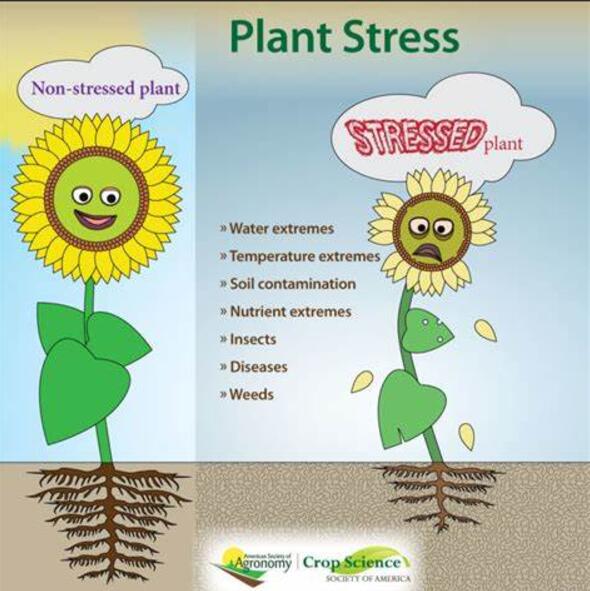Revolutionizing heat stress tolerance in Glycine max: Exploring the latest advances in microbial application
IF 6.8
Q1 PLANT SCIENCES
引用次数: 0
Abstract
Global warming has intensified the abiotic stresses on plants and threatens global food and energy security. Heat stress (HS) has become ubiquitous hazardous environmental stress, eliciting concerns regarding its adverse impacts on terrestrial and agroecosystems. Plant hormones function as signaling molecules essential for stress tolerance, defense mechanisms, and facilitation of plants' overall physiological growth and development. Numerous studies have reported on Glycine max that the exogenous application of phytohormones confers HS tolerance and activates endogenous defensive mechanisms by producing several secondary metabolites. This review summaries the recent progress in phytohormones and their corresponding microbes in the thermotolerance of Glycine max via integrating plant-microbial interaction. These studies suggest that beneficial microbes under HS can induce thermotolerance and thermomorphogenesis through several complex mechanisms. This is the first review to provide insight into the microbial-mediated phytohormone signaling pathway for the transcriptional modulation of secondary metabolism in a range of HS tolerances in soybean. Finally, we provide a primary perspective on improving the response of soybean plants to HS and on producing valuable phytohormones by exploiting microbial-mediated and secondary metabolite interaction.
求助全文
约1分钟内获得全文
求助全文
来源期刊

Plant Stress
PLANT SCIENCES-
CiteScore
5.20
自引率
8.00%
发文量
76
审稿时长
63 days
期刊介绍:
The journal Plant Stress deals with plant (or other photoautotrophs, such as algae, cyanobacteria and lichens) responses to abiotic and biotic stress factors that can result in limited growth and productivity. Such responses can be analyzed and described at a physiological, biochemical and molecular level. Experimental approaches/technologies aiming to improve growth and productivity with a potential for downstream validation under stress conditions will also be considered. Both fundamental and applied research manuscripts are welcome, provided that clear mechanistic hypotheses are made and descriptive approaches are avoided. In addition, high-quality review articles will also be considered, provided they follow a critical approach and stimulate thought for future research avenues.
Plant Stress welcomes high-quality manuscripts related (but not limited) to interactions between plants and:
Lack of water (drought) and excess (flooding),
Salinity stress,
Elevated temperature and/or low temperature (chilling and freezing),
Hypoxia and/or anoxia,
Mineral nutrient excess and/or deficiency,
Heavy metals and/or metalloids,
Plant priming (chemical, biological, physiological, nanomaterial, biostimulant) approaches for improved stress protection,
Viral, phytoplasma, bacterial and fungal plant-pathogen interactions.
The journal welcomes basic and applied research articles, as well as review articles and short communications. All submitted manuscripts will be subject to a thorough peer-reviewing process.
 求助内容:
求助内容: 应助结果提醒方式:
应助结果提醒方式:


